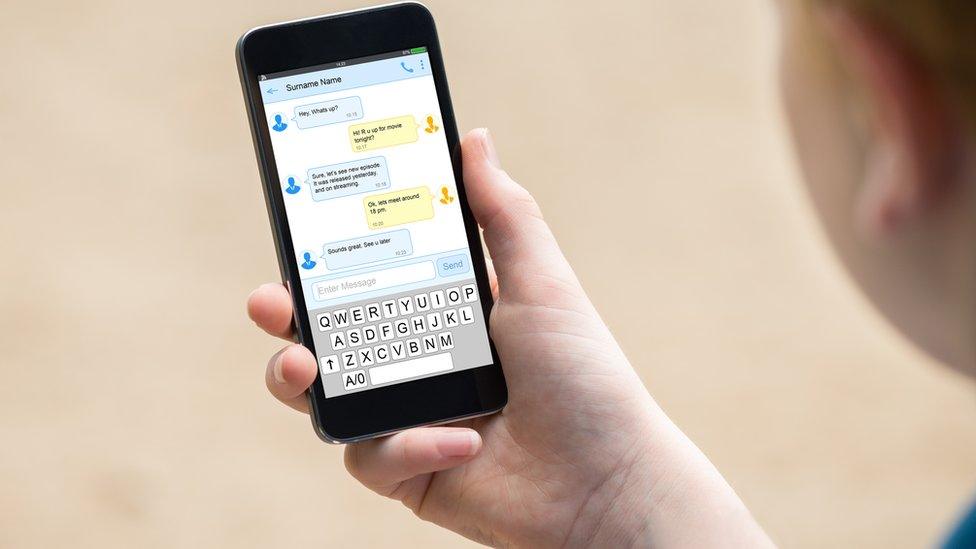Don't be afraid to take phones off teens, says Eton head
- Published

Schools and parents should not be scared to take smartphones and other electronic devices away from teenagers, the headmaster of Eton has said.
Simon Henderson, head of the private school since 2015, says it is sometimes appropriate to take devices away.
Speaking at a Girls' Day School Trust conference in London, Mr Henderson said Eton now requires its Year 9 boys to hand in their devices at night-time.
He said the boys liked the move, as it removed the pressure from them.
Asked how schools could help teenagers navigate social media, Mr Henderson told the conference: "It's a 24/7 culture, but there's a place for taking phones and things off them.
"Sometimes parents and schools are reluctant to do that.
"We've done that now at Eton. Our Year 9 pupils have to hand their devices in at night.
"We thought there'd be outrage from the boys, but they actually liked it - they had permission to not have to check this overnight."
He said Year 9 boys, aged 13 and 14, handed them in at around 21:30 and got them back at around 07:45.
"Parents know it is happening and so are encouraged to call outside of those times.
"If there is a particular pastoral reason why a boy should have it overnight (eg homesickness) then the housemaster can give permission on a case-by-case basis."
Individual school policy
Many schools, both state and private, ban pupils from having mobile phones with them in school.
While teachers have the legal right to confiscate items from pupils, there is no government policy about mobile phone use in England and individual schools make their own rules on the issue.
While Mr Henderson's comments may have many parents thinking "easier said than done", research from the London School of Economics found banning mobile phones in schools has the effect of giving pupils an extra week's education over the course of an academic year.
looked at schools in four English cities and found test scores increased by more than 6% in those which banned phones.
Former Ofsted boss and vice-chancellor of Reading University, Sir David Bell, who also spoke at the GDST conference, was keen to point out the positive side of social media.
Sir David said it was a wonderful opportunity for youngsters to "connect up".
But he acknowledged there were elements of social media that left young people vulnerable.
"We've had some students excluded very quickly by horrible social media traffic."
It was important to help young people identify the "right sort of community" to be a part of, he added.
- Published17 May 2015
- Published4 January 2018